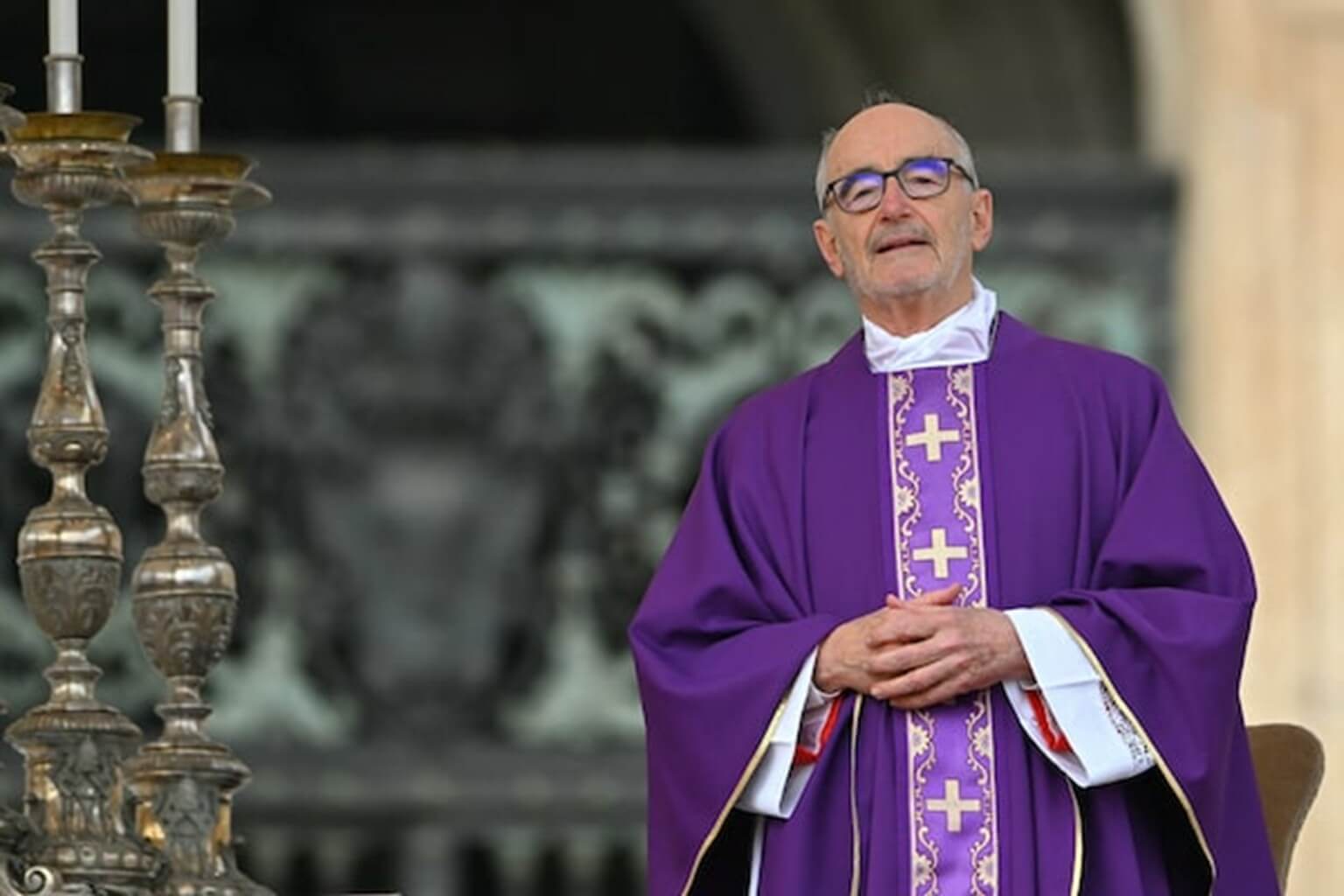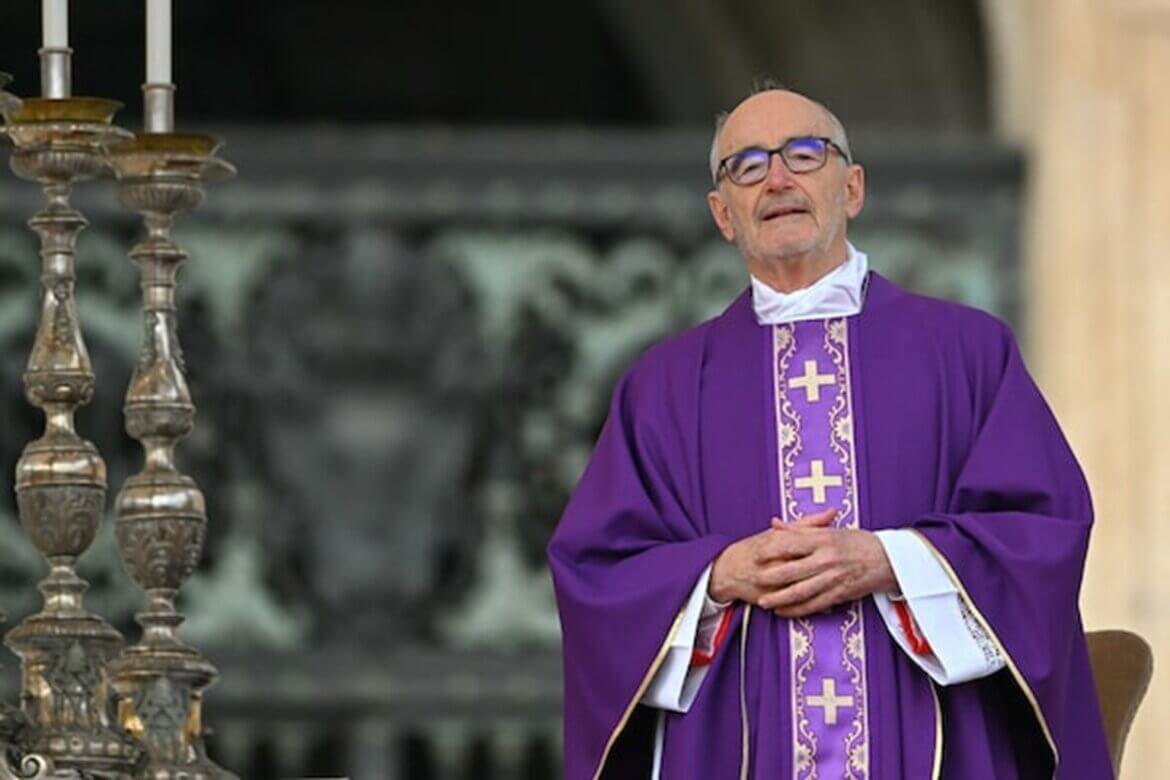Cardinal Czerny Critical of USAID Cuts
Eric Reguly
Volume 40 Issue 1,2,&3 | Posted: April 25, 2025

The White House’s decision to eliminate almost all foreign aid has been condemned by the Canadian cardinal overseeing development and the Catholic Church’s humanitarian agency, Caritas Internationalis, as cruel, reckless and likely to have tragic consequences in the poorest countries.
On Monday, U.S. Secretary of State Marco Rubio announced that, after a six-week review, 83 per cent of the programs of the United States Agency for International Development (USAID) will be cut. “The 5,200 contracts that are now cancelled spent tens of billions of dollars in ways that did not serve, (and in some cases even harmed), the core national interests of the United States,” he said on social media.
In an interview with The Globe and Mail, Michael Czerny, who is close to Pope Francis and is the prefect for the Dicastery for Promoting Integral Human Development, called the sudden gutting of USAID after it had made funding commitments around the world an “injustice” to the poor and incompatible with the church’s convictions. “Aid is a response to those in need,” he said. “It’s a call on our conscience not only as Christians, but as human beings.”
Alistair Dutton, the secretary-general of Caritas, one of the world’s two biggest humanitarian and development agencies (the other is the International Red Cross and Red Crescent Movement), said the shutdown of USAID has created chaos and uncertainty among charities everywhere. Various governments’ slowdown in aid spending to help fund military buildups is intensifying the problem.
“Charities generally are owed hundreds of millions of dollars in overdue payments that the U.S. government has not made yet, which is threatening bankruptcies,” he said.
In a statement last week, Caritas said the drastic cuts in international assistance by the United States and other countries “will kill millions and betrays hundreds of millions more who will suffer greatly as a result.”
USAID was launched by President John F. Kennedy in 1961 and evolved into the world’s biggest humanitarian agency, measured by total spending (though not as a share of gross domestic product). Disbursements in the 2023 fiscal year came to almost US$44-billion, with some of that funding going to Caritas programs.
In recent years, its outlays were especially crucial in sub-Saharan Africa, where more than a quarter of the overall funds went to health, food, water, sanitation, shelter and climate initiatives. USAID was considered a life saver in the Democratic Republic of the Congo, Sudan, Ethiopia and other countries where extreme violence and hunger, even starvation, were rife.
Almost all those funds have disappeared or are set to disappear after U.S. President Donald Trump’s decision in January to freeze foreign aid, alleging fraud and wasteful spending. Mr. Trump has condemned aid for Africa in general. He has insisted, for instance, that millions went to promote LGBTQ issues “in the African nation of Lesotho, which nobody has ever heard of.”
The U.S. Supreme Court last week ruled that USAID and the State Department must pay contractors as much as US$2-billion for aid work already completed. But the court decision in no way spares the agency from oblivion. Mr. Rubio said the surviving USAID programs would be folded into the State Department.
Cardinal Czerny said that USAID and other humanitarian agencies have every right to reform their spending patterns, but a shutdown, with no warning while programs are under way, is a betrayal of responsibility and will have fatal consequences. “It’s a terrible disaster to cancel such important programs,” he said. “When a program is already running and suddenly it’s cancelled, that’s really tough. AIDS patients, for instance, are suddenly without treatment. Each one of these is a tragedy in itself.”
Caritas said aid spending is bound to keep falling as wealthy countries spend more on defence at the expense of aid. The leaders of many NATO member states began pushing for more defence spending after the Trump administration stopped sending weapons to Ukraine, leaving Europe to try to fill the gap.
Mr. Trump has also threatened several times to pull the U.S. out of NATO. Over the weekend, Tesla and SpaceX billionaire Elon Musk, who is the head of the Department of Government Efficiency, created by Mr. Trump to kill off USAID and other agencies and fire thousands of federal government workers, used social media to call for the U.S. withdrawal from NATO. “We really should,” he wrote. “Doesn’t make sense for America to pay for the defense of Europe.”
Caritas said France, the Netherlands, Switzerland, Germany and the United Kingdom collectively cut their foreign aid budgets by US$12.5-billion recently. The U.K.’s aid spending fell to 0.3 per cent of GDP from 0.5 per cent this year, after a previous cut from 0.7 per cent. Canada cut some aid funding in 2023. “This cumulative cut in aid will have devastating consequences for millions of people worldwide, driving forced migration and undermining the very stability these countries seek to protect,” Caritas said in its statement. “Once again the books of the richest nations are being balanced at the expense of the poorest people.”
Pope Francis, who has been battling various ailments, including double pneumonia, in Rome’s Gemelli Hospital since Feb. 14, has not specifically commented on USAID’s shutdown. But he has been critical of the Trump administration’s plans for the mass deportation of immigrants.
In a letter to U.S. bishops shortly before he entered hospital, he said “the act of deporting people who in many cases have left their own land for reasons of extreme poverty, insecurity, exploitation, persecution or serious deterioration of the environment damages the dignity of many men and women, and of entire families, and places them in a state of particular vulnerability and defenselessness.”
Pope Francis has made caring for migrants one of his pontificate’s main themes. Mr. Dutton said the end of USAID funding will certainly trigger migration in the poorest countries as refugees in camps and displaced people in shelters go hungry and search for food. According to the Un’s World Food Programme, almost 25 million people in Sudan face “acute hunger” and the country “faces the worst displacement crisis in the world” as the civil war enters its third year.
Eric Reguly

